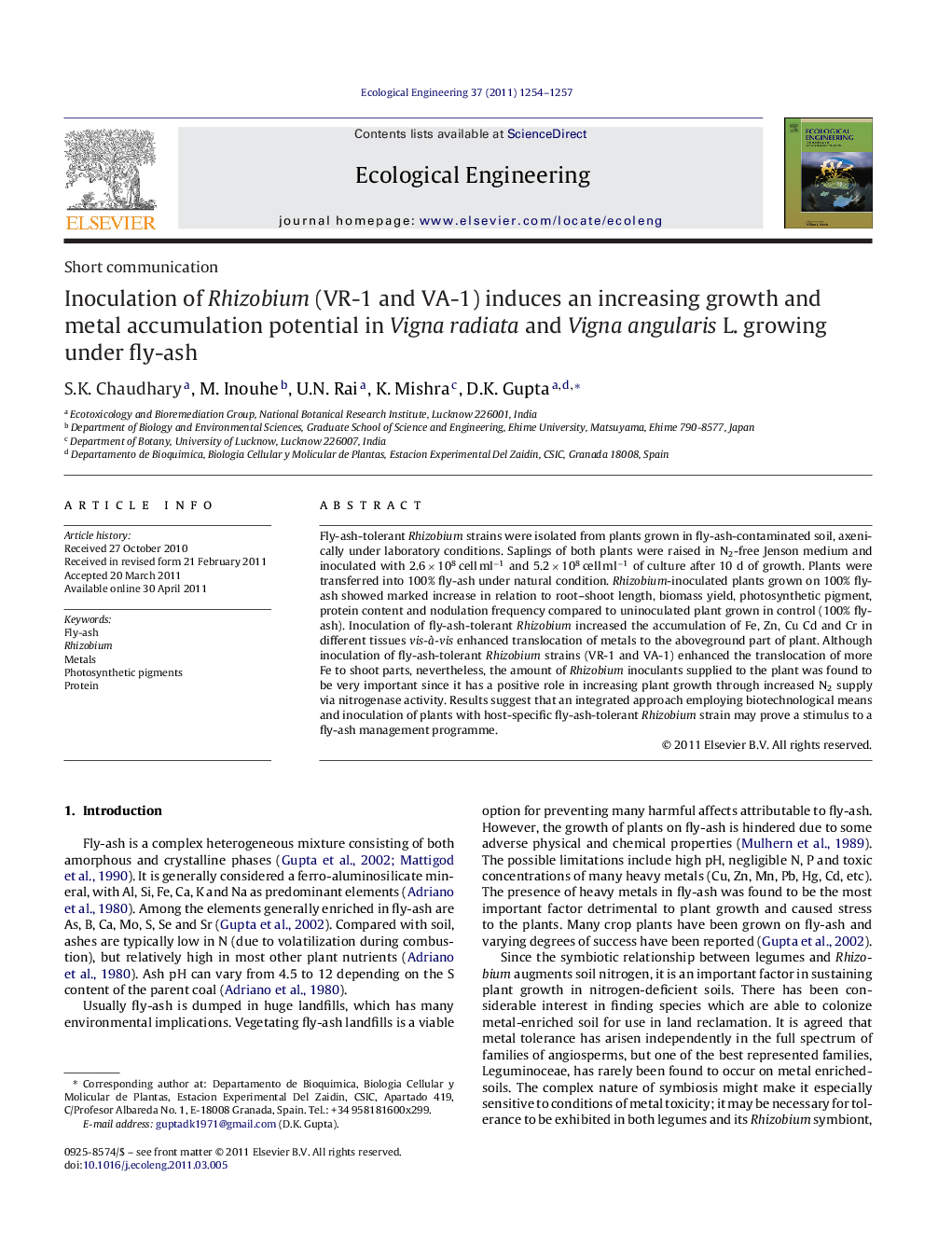| Article ID | Journal | Published Year | Pages | File Type |
|---|---|---|---|---|
| 4390403 | Ecological Engineering | 2011 | 4 Pages |
Fly-ash-tolerant Rhizobium strains were isolated from plants grown in fly-ash-contaminated soil, axenically under laboratory conditions. Saplings of both plants were raised in N2-free Jenson medium and inoculated with 2.6 × 108 cell ml−1 and 5.2 × 108 cell ml−1 of culture after 10 d of growth. Plants were transferred into 100% fly-ash under natural condition. Rhizobium-inoculated plants grown on 100% fly-ash showed marked increase in relation to root–shoot length, biomass yield, photosynthetic pigment, protein content and nodulation frequency compared to uninoculated plant grown in control (100% fly-ash). Inoculation of fly-ash-tolerant Rhizobium increased the accumulation of Fe, Zn, Cu Cd and Cr in different tissues vis-à-vis enhanced translocation of metals to the aboveground part of plant. Although inoculation of fly-ash-tolerant Rhizobium strains (VR-1 and VA-1) enhanced the translocation of more Fe to shoot parts, nevertheless, the amount of Rhizobium inoculants supplied to the plant was found to be very important since it has a positive role in increasing plant growth through increased N2 supply via nitrogenase activity. Results suggest that an integrated approach employing biotechnological means and inoculation of plants with host-specific fly-ash-tolerant Rhizobium strain may prove a stimulus to a fly-ash management programme.
